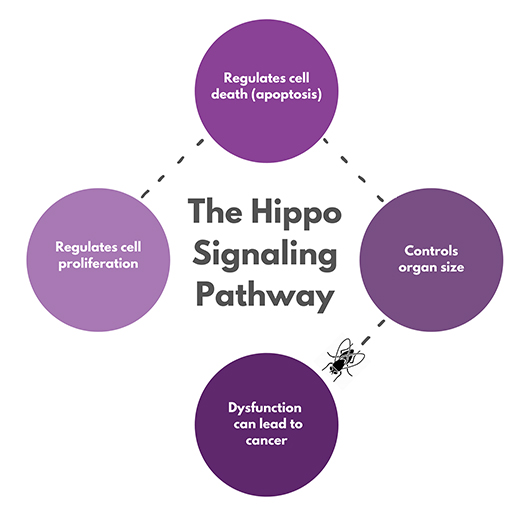Veterinary researcher receives $1.58 million NIH grant to explore pathway for better cancer therapies
Thursday, April 16, 2020

An illustration of the Hippo pathway. | Download this photo.
MANHATTAN — New research at Kansas State University is following a unique pathway that could lead to innovative therapies for treating cancer and other human disorders.
Jianzhong Yu, an assistant professor in the College of Veterinary Medicine, recently received a National Institutes of Health R01 Grant totaling $1,580,922 over five years to uncover how an evolutionary pathway may affect tumor development and cancer.
The study, "Upstream regulation of the Hippo signaling pathway," will explore the molecular and cellular function of a novel regulator.
Originally discovered in the Drosophila fruit fly, the Hippo pathway is a key regulator of tissue growth in both the fruit fly and mammals. Its dysfunction has been implicated in a wide range of human disorders, including cancer.
"Given the strong link between Hippo pathway dysfunction and human cancer, Hippo pathway represents a clear target for cancer therapy," Yu said. "The Hippo pathway responds to a variety of extracellular signals such as contact-inhibition and mechanical forces, but the underlying mechanisms remain unclear."
The objective of Yu's study is to answer that question. His group will first characterize a novel key regulator for the Hippo pathway, then determine how it regulates Hippo pathway function, and explore how this regulation affects Hippo pathway function in tissue growth.
"We believe our research will provide a novel mechanistic understanding of how Hippo pathway upstream signals are coordinated," Yu said. "As we learn more about these functions, we think it will be much easier to learn how to develop new treatments and therapies."
